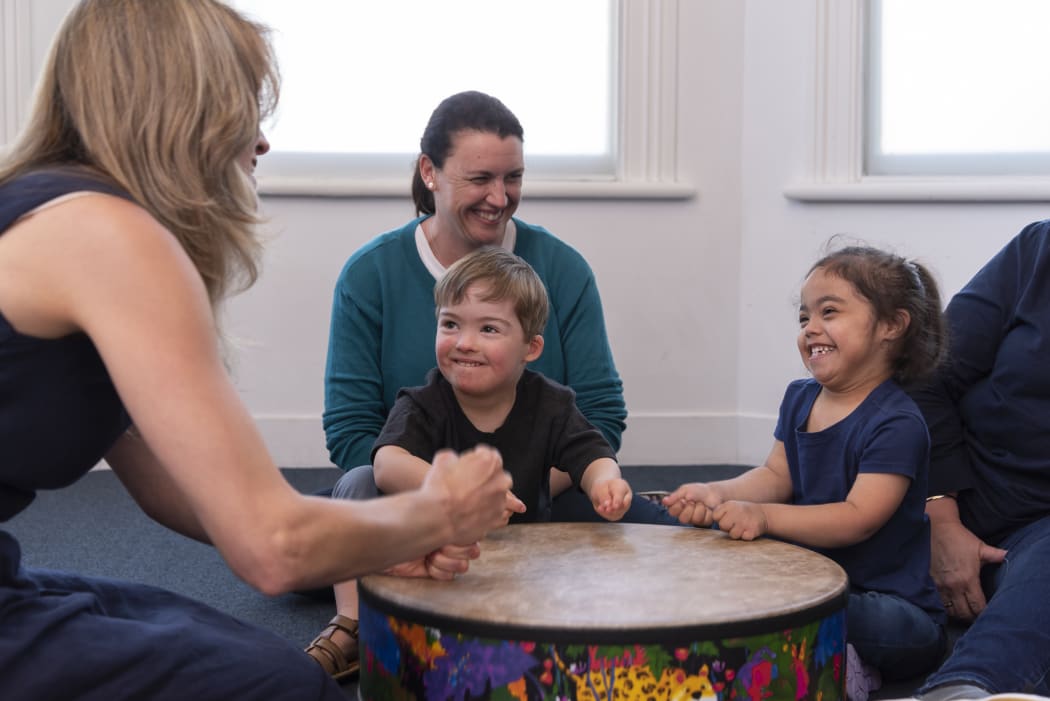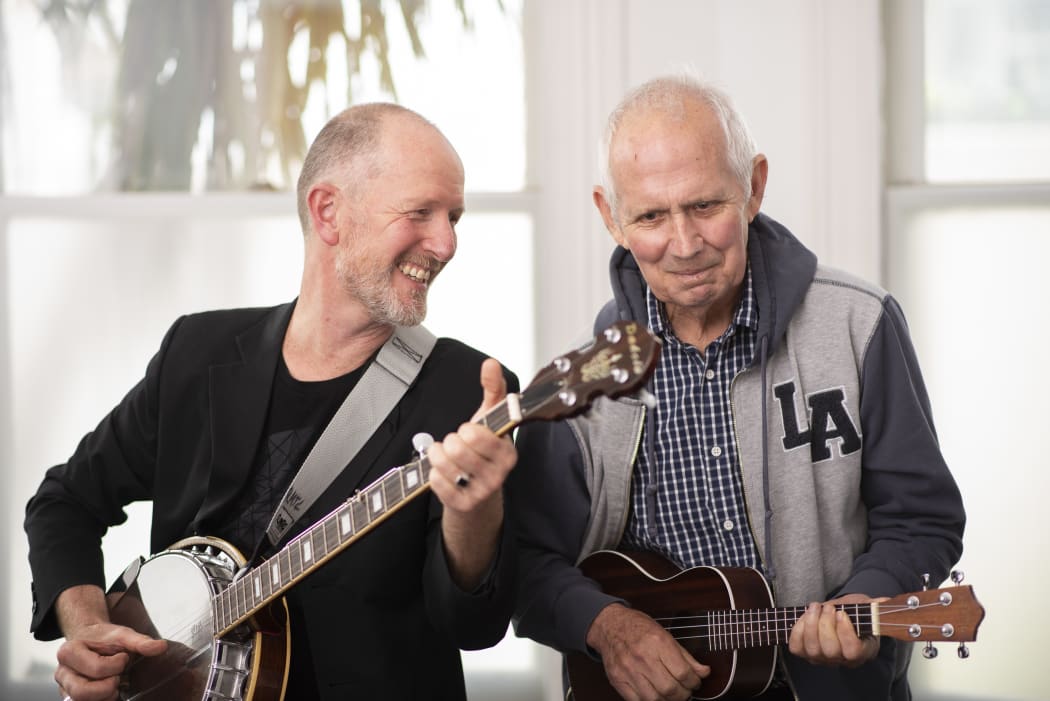It’s Music Therapy Week and this year's theme is mental health and wellbeing. We've put together a list of things you might not know about the amazing effects music can have on wellbeing for everyone!

A music therapy session at the Raukatauri Music Therapy Centre in Auckland Photo: Michael Stephen
1. Music is good for the brain!
Researchers have found there's a whole lot of complex brain activity that goes on when we hear music. Even more so if it's familiar.
Songs we know know, especially from our youth, help bring back memories. Scientists call this 'the reminiscence bump' - the tendency for older adults to have a better recollection of events that happened in their teens or early twenties. As we get older and experience cognitive degeneration, our brains can still recognise and respond to those old favourites.

A music therapy session at the Raukatauri Music Therapy Centre in Auckland Photo: Michael Stephen
Scientists aren’t sure what evolutionary function this hard-wired response to music served, but they've discovered it's the really basic parts of our brains - such as the areas that control motor control and muscle function - that respond to music.
That’s why when you hear a tune you know, your toes start tapping and your head starts nodding. Sometimes your pupils might even dilate, you could get goosebumps or even experience a change in temperature!
There's a growing field of neuroscience that's trying to understanding how music therapy works for dementia and stroke patients, and children with autism or other developmental conditions.
RNZ Music has met music therapists who work with all sorts of people including toddlers with special needs, the elderly and people with physical or mental challenges. Music therapists even use tone, melody, rhythm and lyrics to help palliative care patients and people overcoming eating disorders.
Hear more about how music can help your brain:
2. It helps you have babies!
Yes, it got you dancing with your crush at the party, but when it’s time for the baby to come out, music is medically proven to help mothers in labour.

Birth Music Photo: copyright free
Focusing on positive stimuli can block out some of the pain signals during labour, explains music therapist and doula Beth Hardy explains. She's helped expectant parents write “womb songs” - special, original compositions, to welcome their little one into the world.
Don’t stop singing or playing music when bubba has arrived though, because it is good for them too!
Hear more about how music can help during labour:
3. It’s good for babies and their parents
Singing to babies helps mother and infant bonding. It also encourages young babies to learn emotional self-regulation.
10 month-old Mary Lynne Leroux from Canada cries as her mum sings to her.
Dr Shannon de L’Etoile has spent years studying the link between mothers, babies and singing. She's found singing to babies is “a universal care-giving behavior, meaning all mothers in all cultures do it, regardless of socioeconomic status, of educational background, of language, of literacy.”
It can also help mothers with postnatal depression and benefit babies with Down's Syndrome.
You don’t have to be a professional singer or karaoke superstar, just the melodic sound of a parent’s voice is enough to help children form important emotional mechanisms.
4. Music helps the mutts too!
A UK study has found that playing music to dogs in shelters reduces their stress and anxiety.
RNZ Music’s Zoe George paid a visit to the New Zealand Police Dog training facility and found that the four legged crime fighters loved Bach and Bob Marley:

